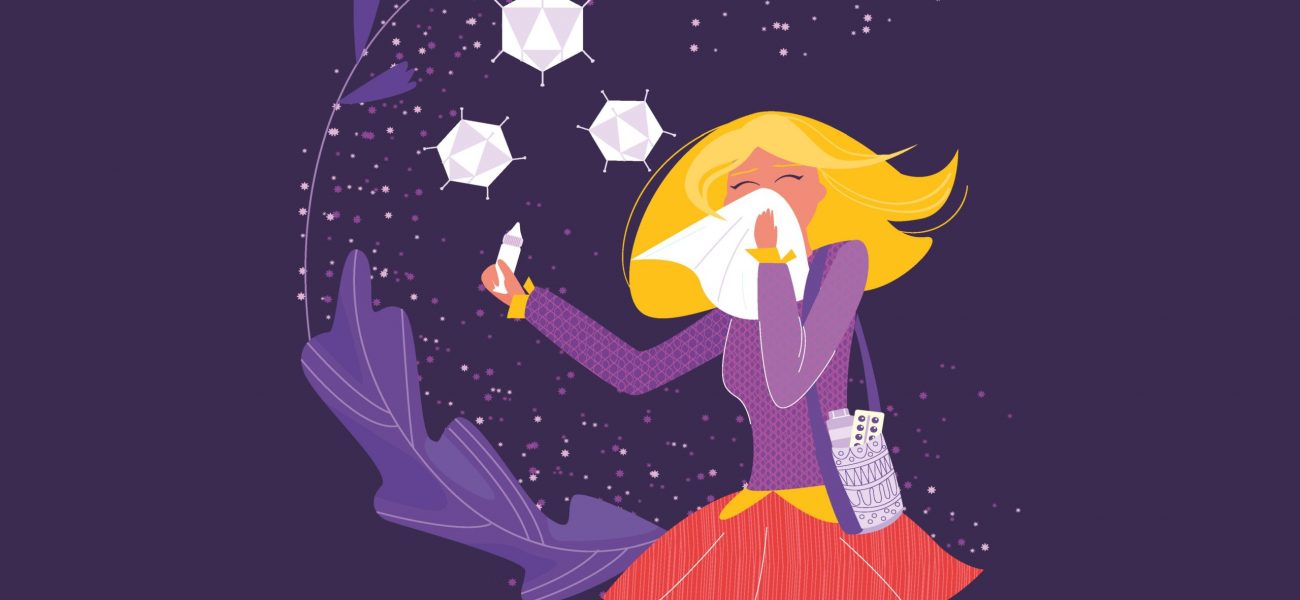Why do some of us suffer more from pesky pollen more than others? We asked the experts to fill us in…
Bless you
“The term hay fever describes a group of symptoms that include sneezing, wheezing, congestion, runny or itchy nose and eyes, and sinus pressure,” explains nutritional therapist Allison Cullen (avogel.co.uk). “It’s caused by your immune system reacting to allergens you breathe in, or to environmental irritants or pollutants that your immune system incorrectly identifies as dangerous. Hay fever shares many of the symptoms as a common cold. Although it’s not caused by a virus or bacteria, the triggering of an immune response causes the production of histamine, which in turn promotes inflammation and itching.”
Breeze through
While there is no cure for hay fever, some allergies, including pollen allergies, which typically trigger hay fever, will disappear naturally as individuals grow up. “Beyond symptoms lessening or disappearing, individuals that know how to manage their allergy and understand their triggers can make lifestyle changes to avoid these,” says Dr Fred Pescatore, author of The Allergy and Asthma Cure. “This naturally leads to the symptoms becoming less severe and reducing the impact that hay fever can have. For those that have very severe hay fever symptoms for prolonged periods of time, immunotherapy is available. You will have to be referred to your GP for immunotherapy which is a form of vaccination. The treatment involves providing your body with small doses of pollen three months before hay fever season to help build your immunity.”
Flower dust
Hay fever symptoms are experienced in response to particular pollens or mould spores, and therefore tend to be present in spring and summer predominantly. However, studies show that the type of pollen you’re allergic to determines how much you’ll be reaching for the tissues and looking for allergy relief. In a study done at University Hospital of Montpellier, research showed that while a lot of people are allergic to grass, other airborne allergens such as tree pollens or weeds can cause the same symptoms, extending the season from as early as February through to October.
H&W loves
A.Vogel Pollinosan Luffa Nasal Spray, £7.99, avogel.co.uk

Pirinase Hay Fever Nasal Spray £6.40, chemist-4-u.com

HayMax Pure, £6.99, superdrug.com





















